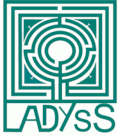Home > Themes > Permanent workshop on adaptive monitoring, data management and (...)

Permanent workshop on adaptive monitoring, data management and modelling
Environmental sciences and ecology increasingly depend on long-term research. Long term monitoring is crucial for the improved management of ecosystems and natural resources, e.g. in the context of global changes, etc.. This is also the case for public health issues where it is also crucial to record disease events and history for the long term and on multiple scales. However, many long-term research and monitoring programs are either ineffective or fail completely owing to poor planning and/or lack of focus (Lindenmayer and Likens 2009).
 Our group has been working in Eurasia for more than 20 years, and has gathered massive data sets from mass screening of human populations, disease registries, and studies on the ecology of small mammal communities in France, China (Gansu, Ningxia, Sichuan and Xinjiang), Kyrgyzstan, etc.. This allows the design of comparative studies on multiple scales and the follow-up of environment changes and their consequences on habitats, animal communities and disease transmission.
Our group has been working in Eurasia for more than 20 years, and has gathered massive data sets from mass screening of human populations, disease registries, and studies on the ecology of small mammal communities in France, China (Gansu, Ningxia, Sichuan and Xinjiang), Kyrgyzstan, etc.. This allows the design of comparative studies on multiple scales and the follow-up of environment changes and their consequences on habitats, animal communities and disease transmission.
This is an example of how ecology including health ecology is evolving into an interdisciplinary, collaborative and data-intensive science (Michener and Jones 2012). This shift in ecology, from studies where long-term and space were hardly taken into account to studies grounded on long-term and multi-scale monitoring of regional ecosystems (e.g. via regional Long Term Ecological Research networks), poses enormous challenges about study design and data management.
 Lindenmayer and Likens (2009) have conceptualized such an approach with the paradigm of adaptive monitoring, driven by tractable questions, rigorous statistical design at the outset, a conceptual model of the ecosystem or other entity being examined and a human need to know about ecosystem change. An adaptive monitoring framework enables monitoring programs to evolve iteratively as new information emerges and research questions change. The adaptive monitoring approach can be applied to all kinds of monitoring including question-driven, passive and mandated monitoring programs.
Lindenmayer and Likens (2009) have conceptualized such an approach with the paradigm of adaptive monitoring, driven by tractable questions, rigorous statistical design at the outset, a conceptual model of the ecosystem or other entity being examined and a human need to know about ecosystem change. An adaptive monitoring framework enables monitoring programs to evolve iteratively as new information emerges and research questions change. The adaptive monitoring approach can be applied to all kinds of monitoring including question-driven, passive and mandated monitoring programs.
The long term experience acquired in study design and continuous monitoring enable our group to improve the design and data management of current and future studies. Data that were collected consistently in the spirit of adaptive monitoring schemes during earlier programmes have been centralized, harmonized and computerized mostly at the UMR6249 Chrono-environment. This allows us to develop new programmes about ecosystem health and the evolution of disease transmission 10 years and even 20 years after the baseline was established.
Data structure and management however are still far from meeting the optimal standards required regarding description, preservation, discovering and capacity to be integrated (Michener and Jones 2012), and analyses still need the personal support of people who have collected and maintained the data. The UMR6249 Chrono-environment is currently working on methodologies that would enable standard protocols for organizing and describing data in a multi-disciplinary context and better incorporating eco-informatics into the research enterprise. This will be done in close connexion with the human resources of the Virtual Observatory of Besançon, a member of the International Virtual Observatory Alliance, who has capitalized large experience in interoperability standards and technologies and large database management including confidentiality/access restriction when and where necessary.
The aim of this permanent workshop package will be to share experience in long term multi-disciplinary study design in the field of ecosystem health and environmental diseases ecology, and to improve participant capacity in organizing “monitoring programs in which the development of conceptual models, question setting, experimental design, data collection, data analysis, and data interpretation are linked as iterative steps”. There is an insistent demand by several of the Asian partners, including of a methodological support regarding their own “registries” or “observatories”, both on the ecological and public health sides. Such adaptive monitoring program can evolve in response to new questions, new information, situations or conditions, or the development of new protocols but this must not distort or breach the integrity of the data record (Lindenmayer et al. 2011). It will also improve the management of data with a particular concern about how to improve data life cycle integrity and long term preservation (Michener and Jones 2012).









